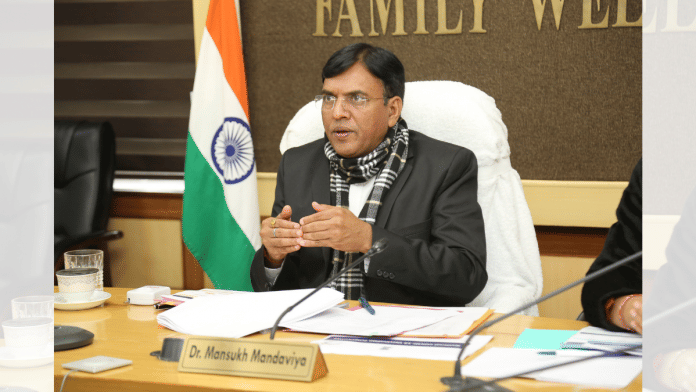
Thank you dear subscribers, we are overwhelmed with your response.
Your Turn is a unique section from ThePrint featuring points of view from its subscribers. If you are a subscriber, have a point of view, please send it to us. If not, do subscribe here: https://theprint.in/
An oath is sacrosanct and important and yet it can be of no use. It all depends on the person who takes it. One may go by the words and spirit of the oath and one may not. Then, why is this fuss?
As we have come to know, the National Medical Commission (NMC) has come out with a diktat that the medical pass-outs are now required to take the ‘Charak Shapath’, an oath named after the father-figure of traditional Indian medical practices of Ayurveda instead of the Hippocratic oath that doctors world-wide including India have been taking. I believe the NMC has unnecessarily entered into a non-issue and has taken a view which is myopic (I will explain it later). I have come to know that AIIMS pass-outs have been taking this oath for quite some time by now and some of the medical colleges in India have been using this oath too. I understand but have no verified fact that the Ayurvedic medical schools in India must have been administering the Charak Shapath, an integral part of Charak Samhita, the treatise on medicines reportedly authored by Charak, the healer. A debate is already on both inside and outside the medical domain about the propriety of either of the oaths. While some believe that the Hippocratic Oath is not relevant now that we can boast of our own Charak and his Shapath and we must shun the ‘foreign’ Hippocratic oath. The contesting group advocates that there are certain ethics which are sacrosanct to the profession, the Hippocratic oath embodies them and hence must not be replaced.
Mr Shashi Tharoor has come up with a solution; the Charak Shapath not supplanting the Hippocratic oath but to supplement it. Without going into the debate of keeping one or replacing it or one supplementing the other, let me say a few words.
Oath, in whatever form or language, is useless unless one who takes it, goes by it in letters and spirit. Some of the oaths we know to exist in India in public life are mostly oaths of office and some are professional. The Judges of courts, the peoples’ representatives, the ministers of the states and the union, the heads of states and the nation take oath of office before assuming such office. They take the oath in the name of God and the Constitution of India. The underlying basic fact and hence the spirit of all such oaths is that all their actions will be “without fear or favour”. The other kind of occasional professional oaths taken before and while conducting public offices are very many including the now debated Hippocratic oath and Charak Shapath and the annual oath on Vigilance Day. Both these and other professional oaths speak to uphold universal values of care and welfare of the community and the nation, to behave as a true professional. But how far we live by these oaths is a matter of introspection of people taking the oaths. Aristotle once said, ”The philosopher should begin with medicine; the physician should end with philosophy.”
Now, I come to the more esoteric point of taking an oath and living by it. When an oath is only the outer utterance of inner beliefs closely held to heart, there is little difficulty in living by it; because one is naturally attuned to it, the abidance of the oath becomes a way of life. But when an oath is superficially taken, as a routine matter or an occasional exercise, it is taken for the sake taking an oath without any sanctity; such as the peoples’ representatives take or the very many people take it on Vigilance Day. The level and spread of corruption, nepotism at these offices that we come across on daily basis bear ample testimony to this superficiality of taking oaths. In spite of these oaths, the medical bill is inflated to sync with medical insurance cover, the ministers weigh the catch of votes, both past and probable future and many other considerations including those of middlemen, kickbacks etc. The less is said about the oath on Vigilance Day, the better. These ceremonies of taking such oaths can very well be dubbed as ceremonies of taking oath of lies. So, why take an oath?
Now, let me say a few words about the myopic NMC. The Hippocratic oath has been legally mandated in many countries. Then what about doctors in India who come out the hall with a Charak Shapath in mouth? Are they ‘Made in India’, only for India? Will they be asked to take the Hippocratic oath before taking up the profession overseas? Will the high-calibre specialist doctors coming to India to treat be asked to take the Charak Shapath before treating anyone in India? NMC will now have uneasy hiccups.
Also read: Centre organises ‘Chintan Shivir’ with focus on medical tourism, digital health
These pieces are being published as they have been received – they have not been edited/fact-checked by ThePrint.


COMMENTS